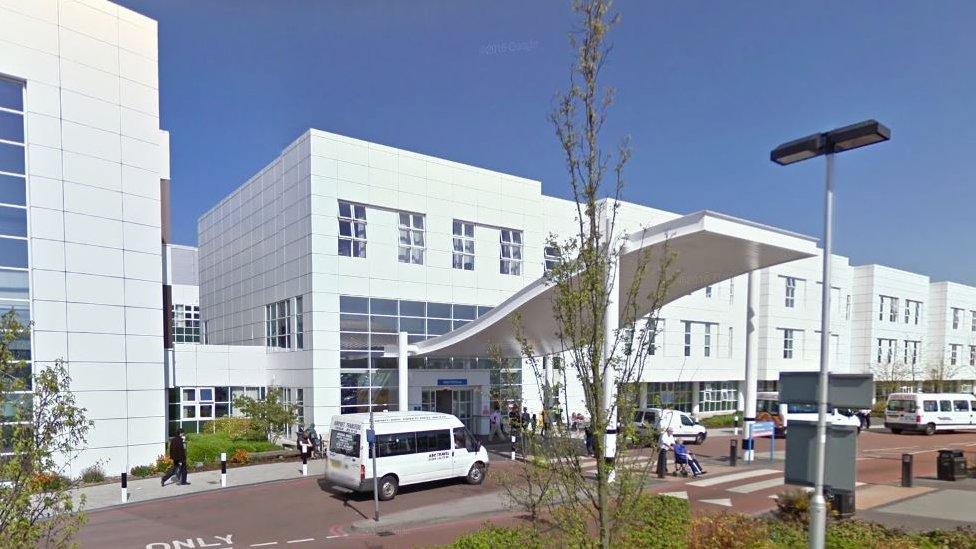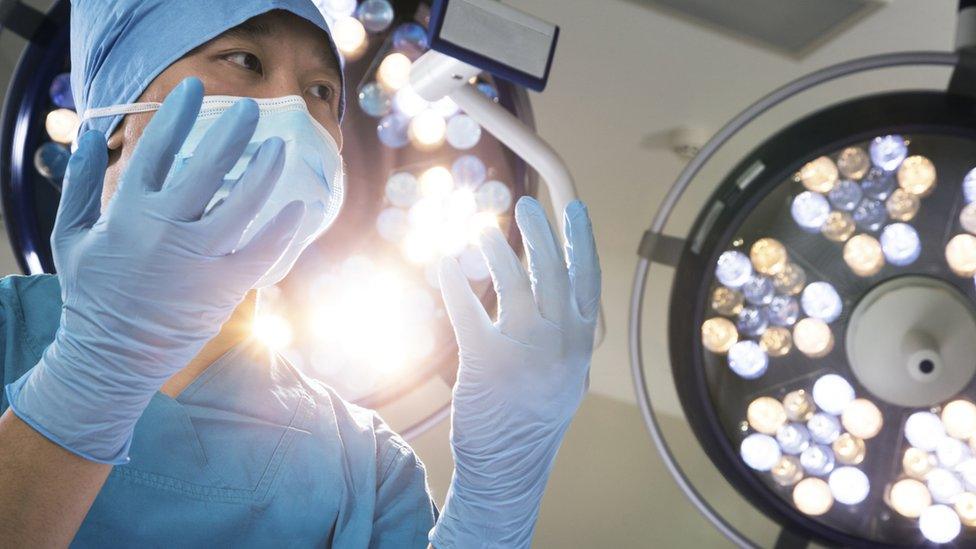Inquiry call over NHS health provider's finances
- Published

IMH operates 50 NHS sites, including Dudley's urgent care centre at Russells Hall Hospital
An MP is demanding the health secretary investigates how a private firm running dozens of GP surgeries and NHS walk-in centres is handling its finances.
Integral Medical Holdings (IMH), which controls 50 NHS sites, swapped its debts for loan notes, external to its parent company, which is based in The Bahamas.
It essentially means taxpayers' money given to IMH ends up paying off interest of 20%.
IMH said the system allowed flexibility over when debts were repaid.
'High interest rate'
A loan note is essentially a document which has evidence of a promise to repay an amount to a lender.
The company obtained most of its NHS contracts when it bought Manchester-based Malling Heath Limited in February 2015 for £6.21m.
It operates 12 surgeries and walk-in centres in the West Midlands, seven in Kent, five in London and others in Essex, Cambridgeshire, the East Midlands and Dorset.
Loans totalling about £4m to Santander and Lloyds, and which had an interest rate of 3.5%, were paid off in November 2015 and other debts exchanged for loan notes from IMH's parent company Butterfly Ventures.

Butterfly Ventures, IMH's parent company, is based in The Bahamas
A document seen by the BBC shows David Hudaly, a multi-millionaire domiciled in Israel, as the note holder for at least one of the loans, for £2.4m.
Labour MP Emma Reynolds, who represents Wolverhampton North East, said she would write to Health Secretary Jeremy Hunt urging him to investigate private NHS contractors with off-shore tax havens.
"I would like to know why this private company has taken a loan at such a high interest rate and I would like to know if the NHS and Department of Health and government is looking into this practice and whether it's widespread," she said.
'Greater flexibility'
In a statement, Richard Power, from IMH Group, said it was "committed to the improvement of primary care and has already invested significant resources to help create a patient focused, clinically sound and economically sustainable service".
"IMH concluded some time ago that repaying its bank debt would allow greater flexibility to deliver its programme for its practices and patients resulting in maximised patient outcomes on a sustainable basis.
"It therefore secured alternative funding. The payments currently paid on this funding are materially lower than repayments being paid on the bank debt.
"IMH is appreciative of the continued support and flexibility of its principal financial backer."
- Published20 February 2015
- Published25 August 2016

- Published5 February 2016